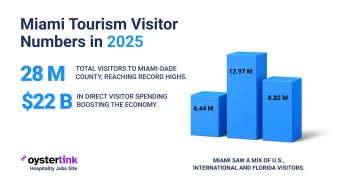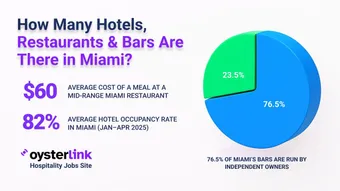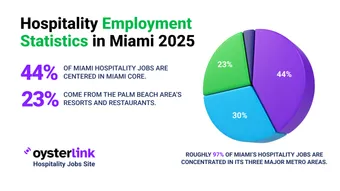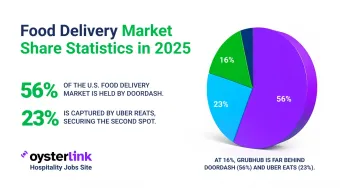Nashville, TN Cost of Living: Quick Takeaways
- Housing Costs: Renting a one-bedroom apartment in Nashville has risen steadily, reaching about $1,660 in 2025.
- Transportation Expenses: Public transit fares average $2.25 per ride with monthly passes around $70; fuel costs are approximately $3.26 per gallon.
- Healthcare Costs: Monthly employer-sponsored health insurance premiums average $140.33 while Silver plan premiums are about $621.
- Income Levels: Median household income in Nashville for 2025 is projected at $75,200.
Nashville, Tennessee is known for its rich music history and growing economy. Living costs have been changing as the city expands and attracts new residents.
This article offers a detailed breakdown of Nashville's 2025 cost of living, covering housing, transportation, utilities, and more to help residents and newcomers plan their finances.
Hospitality employers in Nashville may find guidance on effective hiring through restaurant staff hiring strategies, which can help address labor challenges amidst changing living costs.
1. Housing Costs in Nashville, TN
Housing expenses form a major part of living costs in Nashville. Here's a look at the average rent for a one-bedroom apartment over the years:
- 2010: Around $900
- 2015: $1,050
- 2020: $1,200
- 2024: $1,576
- 2025: Estimated at $1,660
This upward trend reflects increased demand and growth in the local economy and population.
2. Homeownership and Real Estate Trends in Nashville, TN
For those looking to buy homes, real estate prices have appreciated consistently:
- 2010: Median home price was about $150,000
- 2015: $200,000
- 2020: $300,000
- 2024: $447,647
- 2025: Projected around $450,000
These figures illustrate Nashville's robust housing market and the increasing investment value of real estate.
Real estate and restaurant owners in the area might also be interested in learning more about hospitality real estate market trends that can impact location strategies.
3. Transportation Expenses in Nashville, TN
Nashville offers various transportation options with the following associated costs:
- Public Transit: Single rides cost about $2.25, and monthly passes are approximately $70.
- Fuel Costs: Gasoline prices average $3.26 per gallon in 2025.
- Vehicle Maintenance: Annual maintenance expenses average near $1,200.
Transportation expenses may vary based on commuting patterns and mode of travel.
4. Utility Costs in Nashville, TN
Typical monthly utility costs for a standard apartment include:
- Electricity: $182.42
- Internet: $74.06
- Total Utilities: $256.48
Utility expenses can fluctuate depending on usage and service providers.
For restaurants in Nashville considering digital payments, checking out contactless payment guides can help optimize costs associated with payment processing.
5. Grocery and Food Expenses in Nashville, TN
Groceries cost around $400 per person per month on average in Nashville. Dining out ranges include casual meals costing approximately $18 and mid-range restaurant meals around $75.
6. Healthcare Costs in Nashville, TN
Healthcare expenses cover insurance and out-of-pocket spending. Employer-sponsored monthly premiums average $140.33, while Silver plan premiums stand at nearly $621 monthly.
7. Educational Expenses in Nashville, TN
Educational costs in Nashville include:
- Public Schools: Free, funded through taxes.
- Private Schools: Average tuition about $20,500 annually.
- In-State University Tuition: Roughly $6,381 per year.
Families should consider these figures when budgeting for education.
8. Entertainment and Leisure in Nashville, TN
Nashville offers various entertainment options:
- Movie Tickets: Average cost is $15 each.
- Gym Memberships: Monthly fees around $49.14.
- Mid-Range Restaurant Meals: Typically $75 per meal.
Annual entertainment spending is approximately $2,482, contributing to a vibrant lifestyle.
Hospitality workers and employers may benefit from reading about hospitality wage trends in 2025 to understand income dynamics affecting spending power.
9. Taxes and Miscellaneous Fees in Nashville, TN
Understanding Nashville's tax structure is important:
- State Income Tax: Tennessee has 0% state income tax.
- Sales Tax: The total sales tax rate is about 9.25%.
- Property Tax: Around $3.155 per $100 of assessed value.
These taxes affect personal finances and business operations.
10. Childcare and Family Expenses in Nashville, TN
Families with children should budget for childcare costs including:
- Daycare: Average monthly cost about $1,192.50.
- After-School Programs: Roughly $300 per month.
- Extracurricular Activities: About $100 monthly on average.
These expenses are important for comprehensive family budgeting.
11. Clothing and Personal Care in Nashville, TN
Nashville residents typically spend:
- Clothing: Approximately $115 per month.
- Personal Care Products and Services: Around $54 monthly for essentials like grooming and haircuts.
Individual spending varies based on lifestyle preferences.
12. Insurance Costs in Nashville, TN
Key insurance costs include:
- Health Insurance: Average monthly premiums are $621 for Silver plans.
- Auto Insurance: Annual premiums average $2,364.
- Homeowners Insurance: Typically about $2,400 annually.
- Renters Insurance: Around $290 per year.
These protect against risks and provide financial security.
13. Miscellaneous Expenses in Nashville, TN
Other costs that affect budgets include:
- Entertainment Expenses: About $2,482 annually.
- Personal Care Services: Estimated $768 per year.
- Miscellaneous Goods and Services: Average around $707 yearly.
These reflect lifestyle and preferences impacting total expenses.
14. Income and Salaries in Nashville, TN
Median household incomes have grown over time:
- 2010: $46,000
- 2015: $50,000
- 2020: $57,760
- 2023: $75,200
- 2025: $75,200 (projected)
This income growth helps offset increased costs in the area.
For hospitality employers in Nashville, knowing restaurant labor shortage insights can help with staffing and salary planning in a competitive market.
Job candidates aiming for roles such as bartender or server can explore job descriptions and salary data tailored to the local market.
15. Comparison with National Averages
Comparing Nashville's cost of living to national averages shows:
- Overall Cost of Living: Around 1% lower than the national average.
- Housing: Slightly higher than national average by about 1%.
- Utilities: Approximately 2% lower.
- Food: On par with the national average.
- Healthcare: About 4% below national average.
- Transportation: Significantly lower by approximately 9%.
- Goods and Services: Roughly 1% below national figures.
These comparisons highlight areas of relative affordability and expense within Nashville.
Our Methodology for Nashville Cost of Living Figures
This analysis combines data from authoritative sources including governmental agencies local studies and national databases. When exact figures are unavailable, estimates are applied thoughtfully to ensure accuracy.
Nashville Cost of Living: Conclusion
Nashville in 2025 presents a balanced cost of living with moderate increases in housing costs paired with competitive transportation and healthcare expenses.
Income growth has helped residents manage the rising prices while maintaining a high quality of life supported by cultural amenities and economic opportunities.
For those considering a move or planning budgets, understanding these detailed cost components of Nashville is essential to making informed financial decisions.
Employers can benefit from reading about effective restaurant staffing strategies to optimize hiring and retention in a growing city like Nashville.




